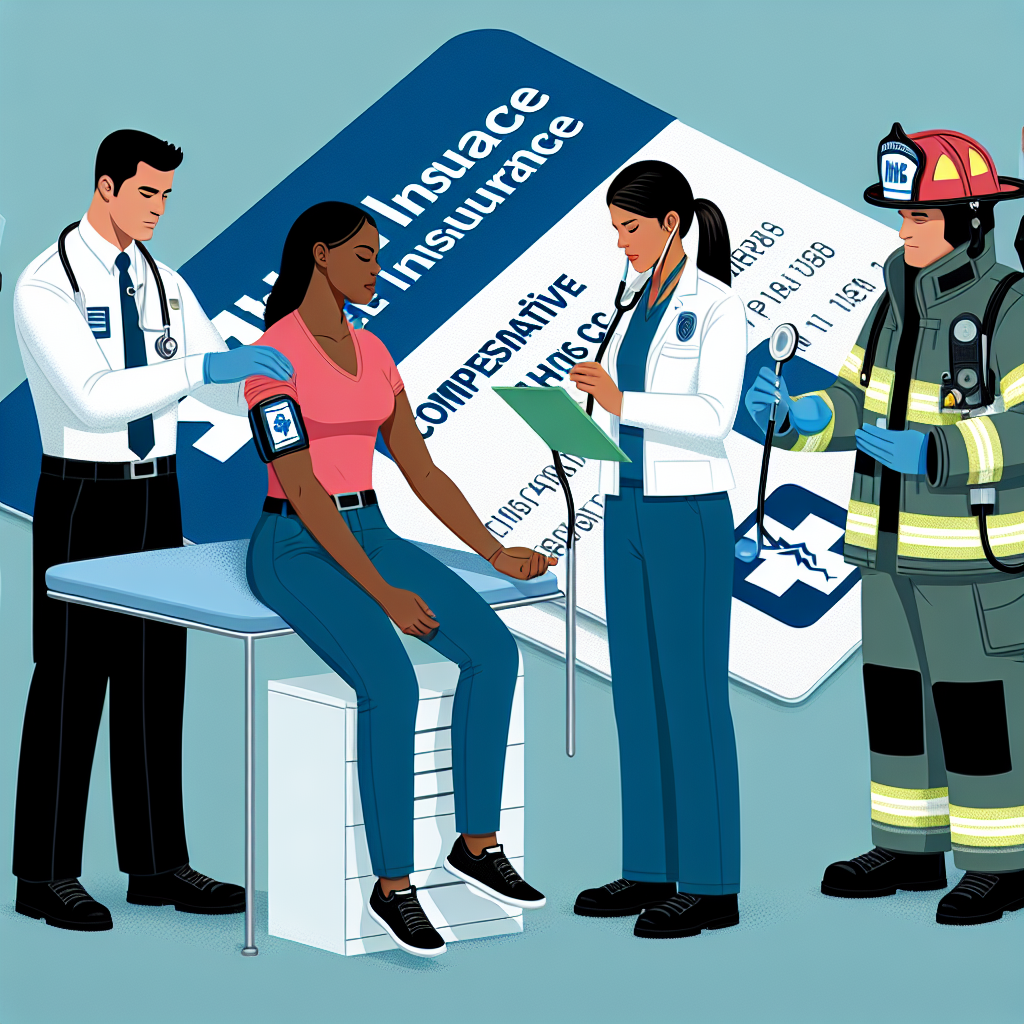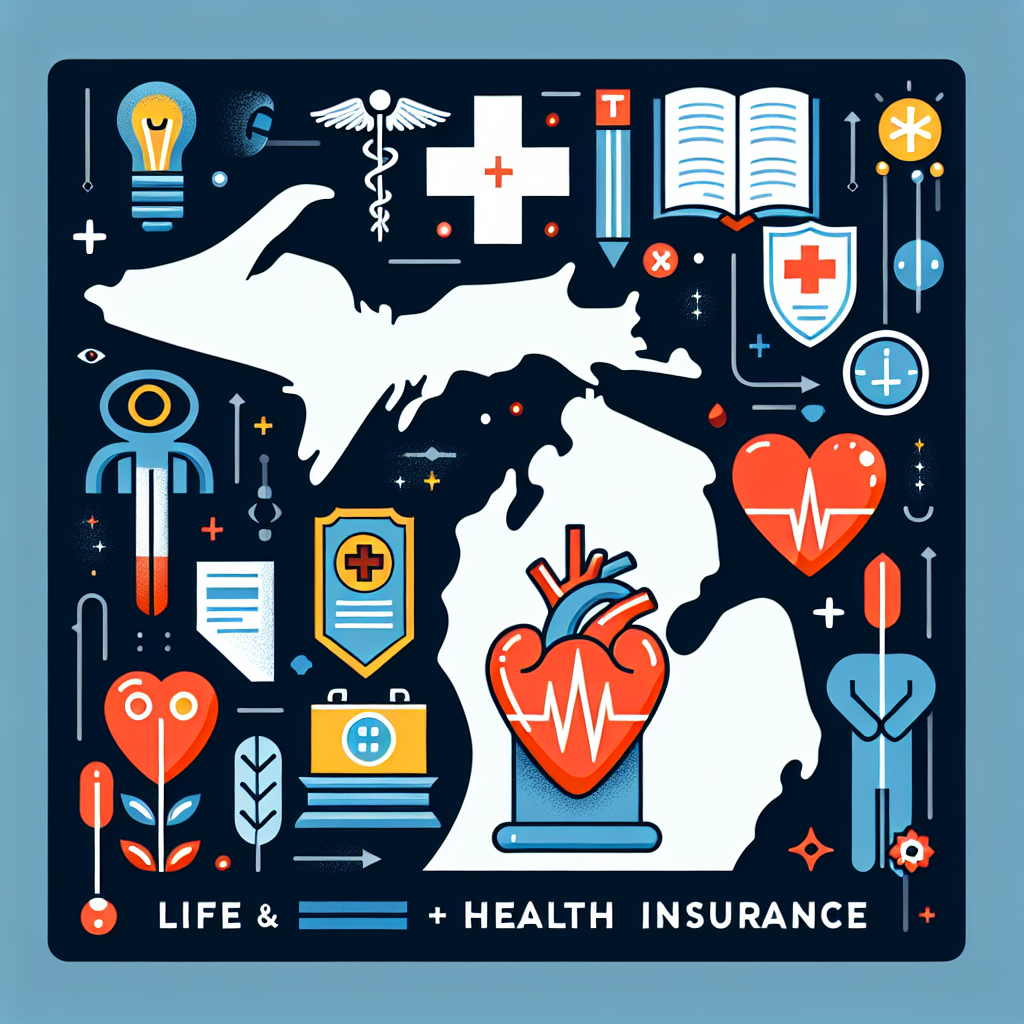Filed under Health Insurance on
Comprehensive Health Insurance for First Responders

In a world where unpredictability is becoming the new norm, first responders stand at the forefront, shielding communities through crises that range from natural disasters to pandemics. Shielding those who shield us demands an ironclad safety net, and comprehensive health insurance for first responders plays a crucial role in offering the protection they need. This article delves into the depths of why tailored health insurance is indispensable for first responders, dissecting its myriad benefits and highlighting key considerations.
Understanding the Unique Needs of First Responders
First responders include a diverse group of professionals such as firefighters, police officers, emergency medical technicians, and paramedics. Each of these roles comes with its own set of physical and mental health risks. According to a report by the Substance Abuse and Mental Health Services Administration (SAMHSA), this community faces higher levels of mental health stress and exposure to physical risks than many other professions. The unique health demands of first responders necessitate comprehensive health insurance that addresses their specific challenges.
A Closer Look at the Risks
- Physical Injuries: From managing burning structures to handling riot situations, the physical risks are immense. A tailored insurance plan should provide extensive coverage for these injuries.
- Mental Health: Witnessing trauma on a daily basis often leads to mental health issues like PTSD or depression. Insurance plans must include robust mental health support services.
- Long-term Health Concerns: Continuous exposure to hazardous environments can lead to chronic health outcomes, requiring long-term insurance strategies with comprehensive coverage.
Benefits of Comprehensive Health Insurance for First Responders
Destined to drive better health outcomes, comprehensive health insurance for first responders offers a plethora of advantages designed to meet their unique needs.
1. Tailored Medical Coverage
Insurance plans designed for first responders often include specialized medical care. Coverage that focuses on frequent issues faced by these professionals, such as orthopedic injuries or lung conditions due to smoke inhalation, ensures that they receive appropriate treatment without delay.
2. Proactive Mental Health Support
According to the Journal of Emergency Management, comprehensive insurance for first responders typically includes mental health services that go beyond the standard. Access to counseling and psychological services helps in addressing issues proactively, reducing the onset of severe mental health disorders.
3. Family Coverage Options
Given the nature of their work, first responders often worry about their families' well-being. Comprehensive plans often extend to family members, alleviating one of the profession's significant stressors. Knowing their loved ones are covered allows first responders to concentrate fully on their duties.
4. Disability and Income Protection
In the unfortunate event that a first responder is injured or falls ill, income protection and disability benefits are crucial. These benefits help to ensure that financial stability is maintained while they recover, covering day-to-day expenses and medical bills without causing financial strain.
Key Considerations When Choosing Health Insurance
Having recognized the importance of comprehensive health insurance, first responders must navigate the intricacies involved in selecting the right plan. Here are some pivotal factors to consider when making this crucial decision.
Evaluating Coverage Options
Understanding the intricacies of coverage is paramount. Plans should be assessed for their breadth of coverage, ensuring they accommodate both emergency and long-term care. Check whether the policy includes special services like physiotherapy, psychological counseling, and rehabilitation.
Network Providers
Insurance networks are often extensive. Still, it is imperative to confirm whether the medical facilities and specialists you prefer are part of this network. The choice of in-network providers greatly influences out-of-pocket costs and the availability of specialized care.
Cost and Affordability
- Evaluate premiums, deductibles, and out-of-pocket limits.
- Consider co-pay arrangements for frequent services used by first responders, such as emergency room visits or specialist consultations.
Affordability should balance with the quality and extent of coverage offered, ensuring it aligns with the unique risks and financial situation of the first responder.
Additional Benefits and Wellness Incentives
Research indicates that preventative care and wellness programs significantly enhance long-term health outcomes for first responders. Look for policies that incentivize healthy living by offering gym memberships, nutrition counseling, and regular health assessments.
How Legislation Impact Health Insurance for First Responders
Legislation often plays a pivotal role in the types of insurance available to first responders and can ensure these professionals receive the coverage and care they deserve. Various policies focus on securing enhanced benefits for those safeguarding public safety.
The Affordable Care Act’s Influence
The Affordable Care Act (ACA) has expanded access to various health benefits for first responders. Changes spearheaded by the ACA ensure that insurance providers cannot deny coverage based on pre-existing conditions often seen in high-risk professions like emergency services.
Workers' Compensation and Occupational Coverage
For many first responders, compensation programs that provide benefits for work-related injuries are essential. These schemes provide financial coverage for medical services and often extend into disability benefits for injuries incurred during their line of duty.
Initiatives to Expand Mental Health Services
Recognizing the mental strain posed by their jobs, legislative measures have advanced in recent years to enhance mental health support within insurance coverage. These initiatives aim to reduce stigma and promote accessible mental health care as a regular part of comprehensive insurance for first responders.
The Future of Health Insurance for First Responders
As the landscape of health insurance continues to evolve, providers are expected to focus more on the specifics of occupational health for high-risk jobs like those of first responders. Emerging trends and technologies are likely to influence the way health care is provided and consumed.
Technological Advancements
- Telemedicine: Increasing access to mental health professionals and specialists through virtual consultations can enhance the accessibility of comprehensive health insurance for first responders.
- Wearable Technology: Monitoring physical health in real-time can help preempt major health issues before they escalate, creating a proactive approach to wellness.
Personalized Medicine
This burgeoning field holds promise for tailoring treatments to the individual needs of first responders, thus improving outcomes and enhancing the efficacy of health insurance coverage.
Collaborative Care Models
The future may see a shift towards cared delivery models that integrate physical, mental, and occupational health, thereby providing well-rounded support to first responders.
Conclusion
Comprehensive health insurance for first responders is no longer a luxury but a necessity. These frontline heroes face an array of risks that require specialized attention through detailed health plans. By understanding the unique needs and challenges faced by first responders and choosing insurance plans that offer robust and targeted support, we can ensure these vital workers are not only protected but also thrive in their essential roles. This investment in comprehensive health insurance is an investment in the well-being of society as a whole, stitched into the fabric of public safety and societal resilience.





